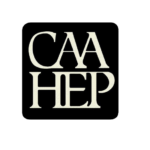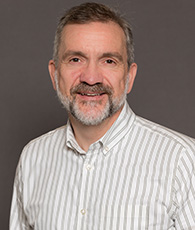Unlock Your Future in Sonography: Choose NJ’s Only Accredited Bachelor’s Degree Program at Rutgers
As highly skilled professionals working under the supervision of a licensed physician, our cardiac sonography graduates are valued members of the healthcare team whose diagnostics skills help guide patients to the appropriate path of treatment.
Why Study Cardiac Sonography at SHP?
According to the Bureau of Labor Statistics, this career field is expected to grow 10% through 2032, much faster than the average for all occupations. As imaging technology evolves, ultrasound is anticipated to replace more invasive, costly procedures.
$80,850
median salary of a Sonography graduate.
Program Highlights
Our 18-month cardiac sonography program has a proven record of success as measured by retention rates, credentialing achievements, and post-graduation employment.
-
- We are New Jersey’s only university-based accredited bachelor’s degree program in cardiac sonography (MSCHE.org)
- Our diverse clinical affiliates include New Jersey’s most noted medical facilities
- We offer comprehensive clinical and didactic instruction in cardiac and vascular sonography
- Accredited by the Commission for the Accreditation of Allied Health Education Programs (CAAHEP.org), our program allows graduates to immediately sit for national registry examinations in cardiac sonography
Program Overview
The addition of vascular sonography to the cardiac program adds the skills employers are seeking in the increasingly multi-disciplinary health care environment.
We offer the following options:
Solo Bachelor of Science in Medical Imaging Science
Joint Bachelor of Science in Medical Imaging Sciences with academic partner schools
Second Bachelor of Science degree in Medical Imaging science
Certificate in Cardiovascular Sonography
- To produce highly trained and qualified cardiovascular sonographers prepared for seamless entry into the workforce upon graduation.
- To deliver a comprehensive didactic and practical educational experience to the student that will ensure they are fully capable of performing at an above average level upon graduation.
- To provide the student with the proper technique, motor and analytical skill necessary to perform in cardiovascular sonography and produce diagnostic quality cardiovascular sonographic examinations consistent with industry standards.
- To support the mission of Rutgers University, RBHS and Rutgers SHP.
Upon completion of the Cardiac Sonography program, graduates will be able to:
- Obtain, review, and correlate pertinent patient history and supporting clinical data to facilitate optimum diagnostic results
- Perform indicated procedures & record, analyze, and process diagnostic data and other pertinent observations made during the procedure for interpretation by a physician
- Exercise discretion and judgment in the performance of sonographic and/or other noninvasive diagnostic services
- Demonstrate appropriate communication skills with patients and colleagues
- Act in a professional and ethical manner
- Provide patient education related to medical ultrasound and/or other diagnostic cardiovascular techniques, and promote principles of good health
- Develop and cultivate the confidence and responsibility needed to perform as a competent sonographer
- Understand and recognize the importance of adaptability
- Implement and perform diagnostic procedures adhering to acceptable departmental, institutional, governmental and professional standards
- Encompass strategies that assure professional development at a level of clinical practice consistent with acceptable standards
- Establish values and attitudes congruent with professional standards and ethics
- Demonstrate awareness of and operate within the Diagnostic Medical Sonographer’s scope of practice
The employment outlook is excellent.
According to the Bureau of Labor Statistics, this career field is expected to grow 12% through 2029, much faster than the average for all occupations. As imaging technology evolves, ultrasound is anticipated to replace more invasive, costly procedures. In 2019, median annual pay was $68,750.
Accreditation
The Rutgers-SHP Cardiac Sonography program is accredited by the Commission on Accreditation of Allied Health Education Programs (www.caahep.org) upon the recommendation of the Joint Review Committee on Education in Diagnostic Medical Sonography (www.jrcdms.org). This accreditation allows our graduates to sit for national registry examinations in cardiac sonography beginning up to 60 days prior graduation.
 Commission on Accreditation of Allied Health Education Programs
Commission on Accreditation of Allied Health Education Programs
9355 – 113th Street, N, #7709
Seminole, FL 33775
727-210-2350
State Authorization and Professional Licensure Disclosure:
The Rutgers School of Health Professions Certificate and BS in Cardiovascular Sonography meets the professional licensing requirements of the following states: ND, NH, NM, OR.
All states not listed above, to the best of our knowledge, do not require professional licensure to practice within our profession.
Admission Criteria
Minimum program eligibility requirements (all options)
60 credits completed from an accredited college or university with cumulative GPA of 2.85 or above. Among these credits the following specific prerequisite courses must be completed with a grade of B- or higher:
- Anatomy and physiology I and II (minimum 6 credits, lab section not necessary)
- English composition I and II (minimum 6 credits in English communications)
- Higher mathematics (i.e. algebra, statistics, or calculus, minimum 3 credits)
- Physics (i.e. introductory, Physics I, etc., 2-4 credits)
- Medical terminology (a non-credit training certificate is acceptable for this course)
Please click on your specific option below for any additional requirements.
This option is designed for applicants with a minimum of 60 college credits or a graduate of an accredited 2-year associates degree. Applicants for this option must have completed either prerequisite 1 or 2 and the specific courses listed below.
Prerequisite Requirements:
Prerequisite 1 – a graduate of an accredited 2-year college who has earned an associate degree in science (A. S.) or an associate degree in art (A. A.).
Prerequisite 2 – completed approximately 60 college credits with the below general education requirements completed.
General Education Pre-requisites:
- 9 credits in Writing and Communications
- 6 credits in Mathematics/Quantitative Skills/Formal Reasoning
- 6 credits in Arts and Humanities
- 8-12 credits in Natural Sciences (Anatomy & Physiology I & II, General Physics are required)
- 6 credits Social Sciences and Historical Diversity
- 6 credits in History, Literature, and Contemporary Issues
Sonography program specific requirements:
Applicants must have met or be scheduled to complete all required *courses with a B- or better:
- Human Anatomy & Physiology I and II (6-8 credits, no lab required)
- Medical Terminology (need not be credit-bearing)
- College-level Algebra, Calculus, or Statistics (3 credits)
- General Physics (2-4 credits) -Due to the high demand for college pre-requisite physics courses, SHP offers the following alternative: DXMS4160:Physics Concepts for Diagnostic Imaging. For further information regarding the above course, please call 908-889-2521 or register.
- English (6 credits)
Students with an overall GPA of 2.85 and above are encouraged to apply. However, the final consideration of GPA scores will depend on the pool of applicants.
Application is due by Jan. 15 for Summer admission.
The degree offers a unique combination of a liberal arts education and entry into the postgraduate health career of Cardiovascular Sonography
The first six semesters of liberal study are taken at the partner institution (minimum of 90 semester hours).
Bloomfield College
Caldwell University
College of Saint Elizabeth
Fairleigh Dickinson University
Felician University
Georgian Court University
New Jersey City University
Ramapo College of New Jersey
Rutgers University – Newark
Requirements:
- Applicants must maintain a minimum GPA of 2.85 and have met or be scheduled to complete all prerequisite requirements prior to the planned date for enrolling in the 4th year specialization coursework
- A minimum grade of B- is required for Anatomy and Physiology I and II or the equivalent courses.
- Students admitted to the 4th year professional phase are selected by an Admissions Committee from among those applicants meeting these minimum standards.
- Medical Terminology is an essential foundation for the courses in the program. It is suggested that students accepted into theCardiac Sonography Program take a college level course or online certificate course prior to the start of the program in September.
- Students in the process of completing courses during the spring semester should submit a letter from their instructor stating their midterm grade for the course. The letter must be on school letterhead and in a sealed school envelope.
- After application review, the strongest candidates will be scheduled for an interview. In selecting students for admission, the program looks for evidence of character, potential, motivation and sound academic preparation.
- Prior to the start of the program, accepted students must become certified in CPR for either Allied Health Professionals or Adult/Pediatrics.The CPR certification must be affiliated with the American Heart Association.
- Enrollment and continued enrollment of accepted students is conditional, based on the results of certain laboratory tests and fulfillment of immunization requirements in order to determine their ability to perform all essential function.
- All students are required to have a criminal background check performed by the school.
Prospective students must have a baccalaureate degree (BS or BA) from an accredited United States University or College or the equivalent from a foreign “accredited” school.
All applicants must have completed the following college credit courses or the equivalent:
*Human Anatomy & Physiology I (3-4 credits, no lab required)
*Human Anatomy & Physiology II (3-4 credits, no lab required)
*Medical Terminology (need not be a college credit bearing course)
*It is recommended that these courses be completed within 5 years of application to program
Algebra or Statistics (3 credits)
English (6 credits)
**DXMS4160 – Physics Concepts for Diagnostic Imaging (SHP online certificate course) or any college level Physics course (2-4 credits)
**Please call 908-889-2521 for more information on this course. To access the online registration form, click here.
Students who are in the process of completing courses during the spring semester should submit a letter from their instructor stating their midterm grade for the course.
- The letter must be on school letterhead and in a sealed school envelope
- A minimum grade of B- is required for Anatomy and Physiology I and II or the equivalent courses.
- Suggested coursework: Introduction to Computers, knowledge of PowerPoint
All students with a GPA of 2.85 and above are encouraged to apply. However, final consideration of GPA scores will depend on the pool of applicants. - After application review, the strongest candidates will be scheduled for an interview. In selecting students for admission, the program looks for evidence of character, potential, motivation and sound academic preparation.
- Prior to the start of the program, accepted students must become certified in CPR for either Allied Health Professionals or Adult/Pediatrics.The CPR certification must be affiliated with the American Heart Association
Foreign Educated Applicants
If you were educated outside of the United States, you must provide the following additional documents:
- Official transcripts mailed directly from the foreign school. The school will also accept an official transcript if it is sent by the applicant only if it is in a sealed school envelope.
- Official evaluation of your foreign transcript (grade by grade) by a foreign credit evaluation service. There are a number of these agencies available such as World Education Services (wes.org), Education Credential Evaluators (ece.org), Global Education Group (globaledu.com) and others. The Cardiac Sonography program does not endorse any particular service and notes the above as examples applicants have used in the past.
- Official results of test scores from the Test of English as a Foreign Language (TOEFL) exam. Applicants must have a minimum TOEFL score of 90 on the Internet-based exam with minimum individual element scores as follows: Reading 20, Listening 20, Speaking 26, and Writing 24. The Computer-Based exam minimum score is 233 (equivalents of Internet-Based Scores).
This option is designed for applicants with a minimum of 60 college credits or a graduate of an accredited 2-year allied health program with a GPA of 2.85 or greater. Applicants for this option must have completed either prerequisite 1 or 2 and the specific courses listed below.
Prerequisite 1 - graduate of an accredited 2-year Allied Health Education program, such as Nursing, Radiography, Dental Hygiene, etc.
Prerequisite 2 - completed approximately 60 college credits
All applicants must have completed the following college credit courses or the equivalent:
- *Human Anatomy & Physiology I (3-4 credits, no lab required)
- *Human Anatomy & Physiology II (3-4 credits, no lab required)
- *Medical Terminology (does not have to have college credits)
- *It is recommended that these courses be completed within 5 years of application to program
- Algebra or Statistics (3 credits)
- English (6 credits)
- **DXMS4160 – Physics Concepts for Diagnostic Imaging (SHP online certificate course) or any college level Physics course (2-4 credits)
**Please call 908-889-2521 for more information on this course. To access the online registration form, click here.
Students who are in the process of completing courses during the spring semester should submit a letter from their instructor stating their midterm grade for the course.
- The letter must be on school letterhead and in a sealed school envelope
- A minimum grade of B- is required for Anatomy and Physiology I and II or the equivalent courses.
- Suggested coursework: Introduction to Computers, knowledge of PowerPoint
All students with a GPA of 2.85 and above are encouraged to apply. However, final consideration of GPA scores will depend on the pool of applicants. - After application review, the strongest candidates will be scheduled for an interview. In selecting students for admission, the program looks for evidence of character, potential, motivation and sound academic preparation.
- Prior to the start of the program, accepted students must become certified in CPR for either Allied Health Professionals or Adult/Pediatrics.The CPR certification must be affiliated with the American Heart Association
Foreign Educated Applicants
If you were educated outside of the United States, you must provide the following additional documents:
- Official transcripts mailed directly from the foreign school. The school will also accept an official transcript if it is sent by the applicant but is in a sealed school envelope.
- Official evaluation of your foreign transcript (grade by grade) by a foreign credit evaluation service. There are a number of these agencies available such as World Education Services (wes.org) and Education Credential Evaluators (ece.org). The Cardiac Sonography program does not endorse any particular service and notes the above as examples applicants have used in the past.
Official results of test scores from the Test of English as a Foreign Language (TOEFL) exam.
Applicants must have a minimum TOEFL score of 90 on the Internet-based exam with minimum individual element scores as follows: Reading 20, Listening 20, Speaking 26, and Writing 24. The Computer-Based exam minimum score is 233 (equivalents of Internet-Based Scores).
In the application, please enter why you want to become a cardiovascular sonography in the essay.
SHP Tuition and Fees
For Tuition and Fees, please see the Undergraduate Tuition and Fees.
(Scroll down to 2024-2025 Rutgers Health Tuition and Fee Rates and click on School of Health Professions)
For Financial Aid information, please visit https://scarlethub.rutgers.edu/financial-services/
Curriculum
Our academic curriculum and clinical facilities have been developed to provide a program that is educational, comprehensive, and capable of thoroughly training students in the principles, ethics, and practices of cardiovascular sonography.
The professional curriculum is the same for all four program options:
| Summer I | Title | Credits |
|---|---|---|
| CDXS4011 | Cardiovascular Principles I | 2 |
| CDXS4019 | Cardiovascular Sonography Fundamentals I | 4 |
| 6 |
| Fall I | Title | Credits |
|---|---|---|
| DXMS4100 | Patient Care for Imaging Prof | 2 |
| CDXS4022 | Cardiovascular Principles II | 4 |
| CDXS4111 | Echocardiography I | 3 |
| CDXS4029 | Cardiovascular Sonography Fundamentals II | 2 |
| CDXS4511 | Non-Invasive Vascular Testing I | 3 |
| 12 |
| Spring | Title | Credits |
|---|---|---|
| DXMS4111 | Acoustic Physics I | 2 |
| CDXS4199 | Clinical Practice I | 5 |
| CDXS4222 | Echocardiography II | 3 |
| CDXS4522 | Non-Invasive Vascular Testing II | 3 |
| 13 |
| Summer II | Title | Credits |
|---|---|---|
| DXMS4212 | Acoustic Physics II | 2 |
| CDXS4299 | Clinical Practice II | 4 |
| CDXS4533 | Non-Invasive Vascular Testing III | 1 |
| 7 |
| Fall II | Title | Credits |
|---|---|---|
| CDXS4333 | Echocardiography III | 2 |
| CDXS4399 | Clinical Practice III | 6 |
| CDXS4400 | Intro to Pediatric Echo | 1 |
| CDXS4600 | Cardiovascular Professional Ed. | 3 |
| 12 |
Total Credits: 50
Courses and requirements by entry-option:
FAQs
Rutgers SHP Cardiac Sonography is an 18- month professional training program that engages the student with a challenging didactic and practical curriculum in ultrasonic imaging of the heart and blood vessels.
Graduates of the Cardiac Sonography program are prepared for entry level positions in non-invasive cardiovascular diagnostic departments.
Cardiac sonographers are employed in hospital and physician office based laboratories and are an integral part of the healthcare team. They are essential in the management of patients with cardiovascular disease and other disorders.
Applicants must have completed a minimum of 60 college credits.
The following specific courses are prerequisites under accreditation standards:
Anatomy & Physiology (6 credits),
English Compositions (6 credits),
College level mathematics (3 credits),
General Physics (2-4 credits), and
Medical Terminology (non-credit or certificate courses are acceptable).
Additional requirements differ depending on the degree or certificate program being pursued.
Students apply online.
Yes. The best source for financial aid information is at the Rutgers Student Financial Aid Office. They can be contacted 973-972-4376.
Yes. Rutgers University and the School of Health Professions offer a limited number of scholarship programs.
The program is located on the Rutgers School of Health Professions campus in the Stanley Bergen Building, 65 Bergen Street, Newark, NJ.


